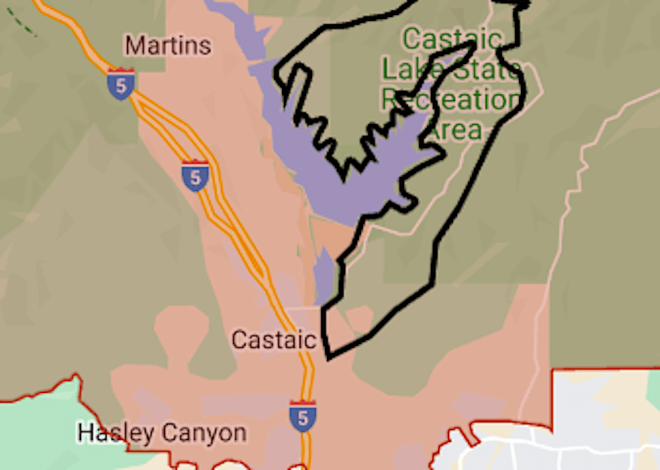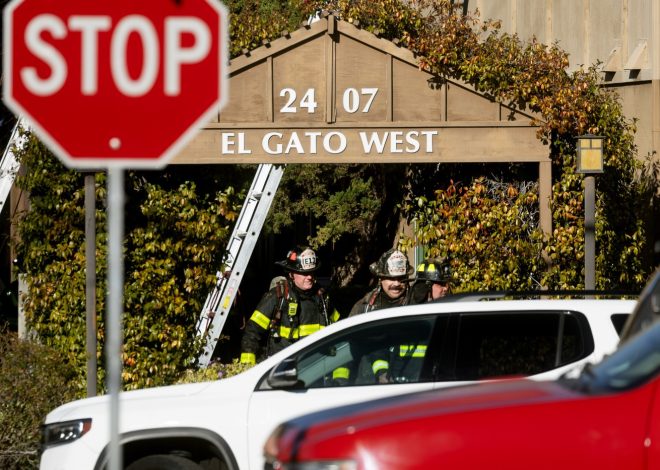
Incumbent Kevin Mullin runs to retain 15th Congressional seat
Two years ago, Rep. Kevin Mullin, the incumbent Democrat representing California’s 15th Congressional District, seized a rare opportunity to fill a Bay Area seat previously held by political heavyweight Jackie Speier, who stepped down after 15 years in Congress.
As he seeks reelection, Mullin appears well-positioned to retain the seat, having secured 75% of the vote in March’s primary against Republican challenger Anna Cheng Kramer, who garnered 25%.
Kramer, an affordable housing executive from San Carlos, is determined to continue her campaign and insists she won’t go down without a fight. As a conservative Republican in the strongly Democratic Bay Area, she claims to have “made a dent” in the local progressive political landscape.
If reelected, Mullin’s top priorities will include addressing affordable housing needs and improving regional transportation. District 15, encompassing most of San Mateo County and southeastern San Francisco, is at the “epicenter” of California’s affordability crisis.
“The federal government needs to do much more on affordable housing,” Mullin said. “This includes tax credits to make projects financially viable and the ability to activate these initiatives.”
Mullin advocates for converting parking areas at public transit stops into housing developments and supports updating the federal poverty line, which he argues has been outdated since the 1960s.
“It was based on food costs, which remain significant, but it needs to account for housing, health care, and child care — modern concerns for families struggling to make ends meet,” he explained.
He described a “financial squeeze” where individuals earn just enough to disqualify them from federal aid but not enough to cover basic needs, emphasizing that modernizing the poverty line would be a cornerstone of his legislative agenda.
“This modernization of the federal poverty line is long overdue and will be a very challenging effort,” Mullin said. “I’m under no illusions about the difficulty. Whenever you try to change a federal formula, you’re likely looking at a multi-year effort.”
Mullin began his political career in 2007 as a council member in South San Francisco, later serving as mayor. He has represented San Mateo County cities on the Metropolitan Transportation Commission and served in the California Assembly starting in 2012 before becoming a congressman.
During his first term in Congress, Mullin confronted the stark contrast between Washington’s hyperpartisan environment and his experience as a state legislator in Sacramento.
“We’ve had a House Republican majority where extremism was on display pretty regularly,” he said. “I found my first term involved a lot of voting no, which was an adjustment after coming from Sacramento, where we were advancing a positive, progressive agenda.”
Kramer, his opponent, has centered her campaign on economic reform, deregulation, education, and individual freedom.
“The reason I’m running is that I’m an immigrant from Taiwan, and my parents escaped communism,” Kramer said. “I’m deeply concerned about trends in this country, particularly the expansion of big government, which reminds me of the dictatorship of Chiang Kai-shek when I was growing up.”
Kramer holds a degree in economics from Whitman College and an MBA from Santa Clara University. She is currently the chairwoman of the San Mateo County Republican Party and has held various local public positions, including chairwoman of North Fair Oaks and a member of the Economic Development Advisory Board in San Carlos.
On housing, Kramer, a former executive with the affordable housing developer Mid-Peninsula Housing, opposes “big government” solutions.
“I don’t think the government should be building housing,” she said. “They excel at securing financing, but construction costs for government projects are often higher than those in the private sector. I’ve seen this firsthand, having worked in both for-profit and nonprofit housing. I strongly believe in a public-private partnership that brings in skilled builders who know how to construct homes efficiently.”
When asked about Republican presidential candidate Donald Trump’s plan to deport millions of undocumented immigrants en masse, Kramer, who is an immigrant herself, said it would be “challenging” and believes illegal immigration is akin to those who “just cut in line.”
“I can’t tell you how many immigrants waiting in line are upset about that,” Kramer said. “I don’t want to reward people who have broken the law and cut in line by giving them a pathway to citizenship. We need immigration reform and a pathway to citizenship, but first, we have to close the border.”
Kramer acknowledges the difficult odds she faces as a conservative candidate as a Republican has not represented the area since 1981.
According to OpenSecrets, Mullin has significantly outspent Kramer, with expenditures totaling $665,517 compared to her $139,709 as of the Oct. 16 reporting deadline.
On whether or not she believes she can flip the district Republican in the heart of the traditionally liberal Bay Area, Kramer offered a measured response.
“I’m optimistic about making inroads with Republican voters and independents,” she said. “People are waking up; nobody feels rich or is doing very well. I’m realistic about the small number of registered Republicans in San Mateo County, but I believe we can make progress.”


